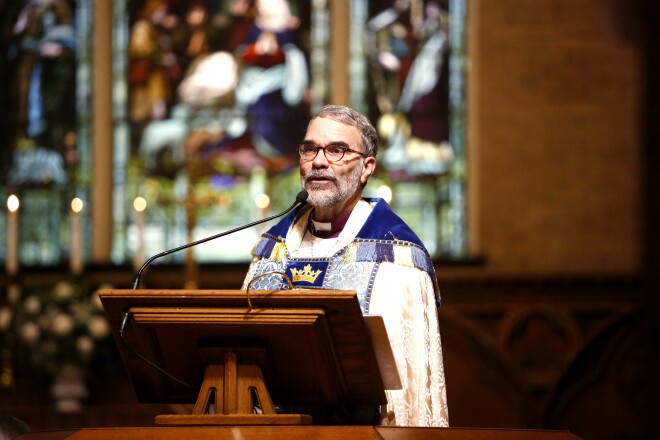Peter at Sea on the Eighth Day
Peter at Sea on the Eighth Day
By Deanna Briody
Peter at Sea on the Eighth Day
By Deanna Briody

I have just returned from a meeting of the Lambeth Conference Design Group in London. It is a privilege to serve on this committee.
Its other members come from Nigeria, South Africa, Rwanda, Northern Ireland, Kenya, northern India, Malaysia, and South Sudan. (A member for the C of E was not able to attend). Those countries represent the full breadth of our Communion. As I looked around the table I realized all that these Christians have seen, and in some cases, continue to see, inter-tribal genocide, inter-religious persecution and even warfare, and racial oppression. For Christians in those countries the cost of discipleship has often been high.
A century ago, the the wreckage of the Great War, the Conference report opened 'God wills fellowship.' But humans on their own are not very good at maintaining it without violence and cruelty. At the most basic level the Church must do so as a witness to the world. And at a deep level our own fellowship is deepened by the suffering of our members, who, as we recall in Holy Week, are to 'recall His death until he comes again.' Communion is not a choice so much as a costly gift and calling.